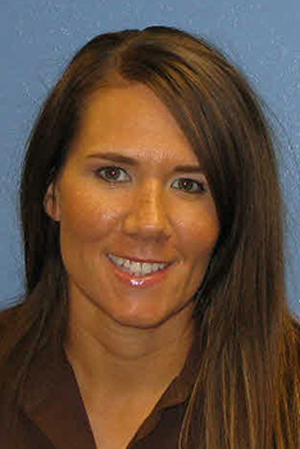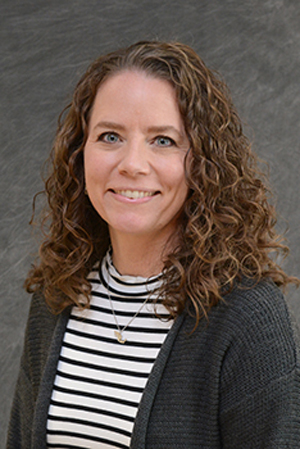Why Choose USU for SLPA preparation?
Speech-language pathology assistants (SLPAs) work under the supervision of master-degree speech-language pathologists (SLPs) in preK-12 educational settings, supporting students with speech-language impairments and learning difficulties. There are strong job opportunities in preK-12 educational settings across the U.S. SLPA employment duties and eligibility requirements vary by state and employer; individual should check their own State Board of Education and employer requirements.
With the USU SLPA Certificate, students are eligible to apply for national certification through the American Speech-Language-Hearing Association (ASHA). For information on the ASHA C-SLPA, see https://www.asha.org/certification/2020-slpa-certification-standards/). It should be noted that working SLPAs can apply directly for ASHA SLPA certification if they meet the criteria without going through the USU SLPA certificate program. However, the structure and guidance provided from the USU program facilitates achievement of needed knowledge and skills. It also satisfies the licensure requirements of many State Boards of Education that SLPA preparation occur within an accredited post-secondary educational institution.
The USU SLPA certification coursework makes students eligible for national ASHA SLPA certification. Students apply directly for national certification with their work SLP supervisors as their clinical experience signatories. For ASHA certification, applicants must also take the national SLPA certification exam, and submit required fees and information.
In Utah, the Utah State Board of Education (USBE) offers a license area of concentration called a Speech-Language Technician (SLT). Like an SLPA, an SLT works under the supervision of a master-degree SLP, supporting students with speech-language impairments and learning difficulties. An SLT needs to have a bachelor’s degree in communicative disoders, such as that offered by Utah State University https://cehs.usu.edu/comdde/. Eligibility for the USBE SLT License includes added training and other requirements. For more information on USBE SLT requirements, go to https://schools.utah.gov/licensing/apply, select AEL Application, then Speech Language Technician (SLT) AEL Checklist. Please note that, at this time, the USU SLPA certificate is not equivalent to the additional training required for USBE SLT professional licensure.
The USU SLPA Certificate program is distinctive nationally for the following features:
- Academic coursework in communication sciences and disorders
- Training in professional practices
- 25 guided observation hours
- Earned credit for clinical experience
- Available through campus and online delivery
- Available without completing a full bachelor’s degree
- Institutional SLPA certificate on the academic transcript
- Eligibility for application for national ASHA SLPA certification
Students can complete the SLPA certificate as part of their 1st or 2nd Bachelor in COMDDE online or on campus. They can also be admitted to the certificate program to take the required courses after completing at least an associate’s degree. Students can apply the certificate coursework toward completing the USU COMDDE Bachelor’s degree required for admission to SLP graduate education.
USU SLPA Certificate Requirements
The academic and clinical preparation required for the USU SLPA certificate can be obtained with just 8 courses (24 semester credit hours). Students must complete at least three of the six other required courses before taking COMD 4200 and COMD 5960.
Required SLPA Coursework
| COURSE | COURSE TITLE | CREDITS |
|---|---|---|
| COMD 2600 | Introduction to Communicative Disorders (includes 25 hours of guided clinical observations) | 3 |
| COMD 3200 | Child Language Development | 3 |
| COMD 3500 | Phonetics and Phonological Development | 3 |
| COMD 3800 | Anatomy and Physiology of Speech and Hearing | 3 |
| COMD 3120 | Management of Speech Sound Disorders (assessment and treatment of articulation and phonology) |
3 |
| COMD 4200 | Clinical Methods (includes ethics, universal safety precautions, patient/client/student confidentiality) | 3 |
| COMD 4450 | Developmental Communication Disorders (speech sound and language disorders) | 3 |
| COMD 5960 | Clinical Experience: Speech-Language Pathology Assistant | 3 |
Program Policies and Procedures
The USU SLPA certificate can be earned two ways: (a) during completion of the USU 1st or 2nd COMDDE BA/BS or, (b) as an admitted Certificate student following at least a 2-year associate’s degree in any area. The SLPA certificate involves a total of 8 courses. To earn the certificate, students must meet the following requirements:
- Earn a minimum grade of C in each required COMD course
- Pass the clinical experience course (COMD 5960, graded as Pass/Fail)
- Earn an overall GPA of 3.0 in the set of required courses
- Repeat a total of no more than three COMD enrollments in a single course or across courses
Clinical Experience: Speech-Language Pathology Assistant
In COMD 5960, students complete a clinical experience to learn service delivery practices, clinical knowledge and skills, and work-place behaviors expected for an SLPA position, and guided on how to apply for national SLPA certification. Instructor permission is required to enroll in COMD 5960.
Students must have work positions as SLP-supervised speech assistants with a willing and qualified SLP supervisor, have completed at least three of the other designated COMD courses, and have prior or concurrent enrollment in COMD 4200.Supervision must be provided by a certified SLP (CCC-SLP). An applicant's skills and clinical experiences will be verified by their SLP supervisor. The 100 hours (80 hours direct and 20 hours of indirect service) must be obtained within the semester of course enrollment.
There are two ways to gain the supervised clinical experience offered through COMD 5960: (a) be employed as a SLPA, or (b) have a non-paid student internship. Both involve being supervised by the ASHA-certified SLP who is responsible for that work setting and caseload. The clinical experience typically occurs in a preK-12 educational setting, but can be in a private practice or other appropriate SLPA work place. The job title may differ from SLPA (e.g., Speech-Language Technician, Speech Aide, Health Communication Assistant), but the setting and responsibilities allow the student to provide services within the SLPA scope of practice (see SLPA scope of practice).
Students are responsible for finding their own SLPA employment or internships that meet the clinical experience requirements. Department approval for use of that setting is required before enrollment in 5960.
The SLP supervisor of the COMD 5960 clinical experience must:
- Hold a current ASHA Clinical Certificate of Clinical Competence in Speech-Language Pathology (CCC-SLP)
- Have at least 9 months of full-time clinical experience after being awarded the CCC-SLP
- Have completed at least 2 credit hours of professional development in clinical instruction and supervision.
- Provide 100 hours of supervised clinical experience consisting of 80 hours of direct client/student services and 20 hours of indirect services within the semester of enrollment.
- Be willing to sign off on their own professional judgment of satisfactory completion of the clinical experience
- Optional: If ASHA SLPA certification is desired by the student, be the signatory on the clinical experience directly at the ASHA SLPA application site.
Note: The opportunity to complete the clinical experience as an unpaid student internship will require additional/different agreement and execution procedures due to USU liability and FERPA requirements.



